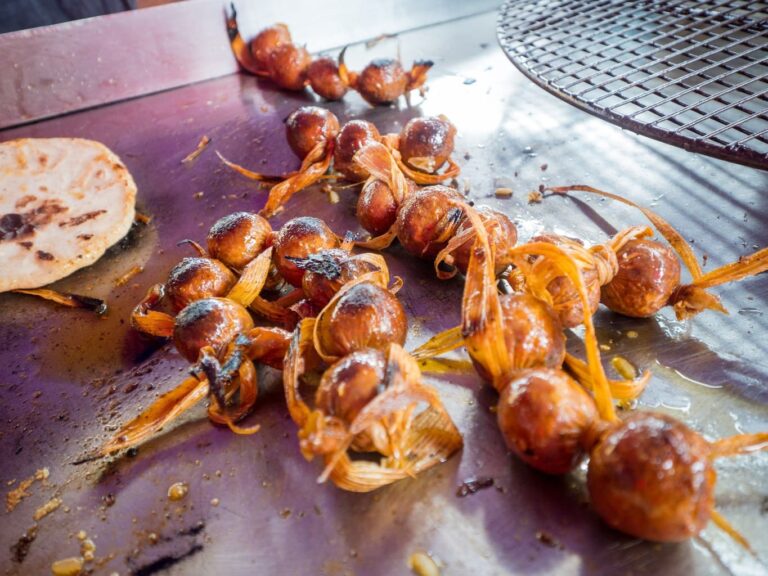Introduction: Street food in El Salvador
Street food is an important part of the culinary culture in El Salvador. From pupusas, the national dish, to tamales, yuca con chicharrón, and various types of grilled meat, there is no shortage of delicious and affordable options for those who want to explore the country’s food scene. However, like in any other country, there are concerns about the hygiene and safety of street food in El Salvador.
Regulations and standards for street food vendors
In El Salvador, street food vendors are required to obtain a permit from the Ministry of Health in order to operate legally. These permits are issued after an inspection of the vendor’s kitchen, equipment, and hygiene practices. Vendors must also attend mandatory training sessions on food safety and hygiene. The country’s food safety regulations are based on the Codex Alimentarius, a set of international food safety standards developed by the World Health Organization and the Food and Agriculture Organization of the United Nations. The standards cover everything from food handling and preparation to storage and transportation.
Health risks associated with street food in El Salvador
Despite the regulations and standards in place, there are still health risks associated with street food in El Salvador. The most common risk is foodborne illness, which can be caused by bacteria, viruses, parasites, or toxins in the food. Symptoms can range from mild to severe, and can include nausea, vomiting, diarrhea, fever, and dehydration. Other risks include contamination of the food with chemicals or foreign objects, and cross-contamination between different types of food.
Government efforts to improve street food safety
The government of El Salvador has been taking steps to improve street food safety in recent years. For example, the Ministry of Health has increased the number of inspections of food vendors and has implemented a system for reporting and tracking foodborne illnesses. The government has also provided training and education to street food vendors on food safety and hygiene practices.
Common food safety practices among street food vendors
While there is no guarantee that street food in El Salvador is completely safe, there are some common food safety practices that vendors use to reduce the risk of foodborne illness. These include washing hands frequently, keeping food at the proper temperature, using separate utensils and cutting boards for different types of food, and avoiding cross-contamination. Many vendors also use disposable plates and utensils to reduce the risk of contamination.
Tips for choosing safe street food in El Salvador
If you want to enjoy street food in El Salvador while minimizing the risk of foodborne illness, there are some tips you can follow. Look for vendors who have a clean and organized workspace, who handle food with gloves or utensils, and who keep hot foods hot and cold foods cold. Ask for recommendations from locals, who may have a better sense of which vendors are reliable. And if you have any concerns about the safety of the food, it’s always better to err on the side of caution and choose a different option.
What to do if you experience foodborne illness
If you experience symptoms of foodborne illness after eating street food in El Salvador, it’s important to seek medical attention right away. Dehydration is a common complication of foodborne illness, so it’s important to drink plenty of fluids, especially if you are experiencing diarrhea or vomiting. Keep any leftover food that you suspect caused the illness, as it could be tested to determine the cause of the illness.
Conclusion: Enjoying safe and delicious street food in El Salvador
Street food in El Salvador can be a delicious and affordable way to experience the country’s cuisine. While there are risks associated with street food, following common food safety practices and choosing vendors carefully can help you minimize those risks. By being cautious, you can enjoy the unique flavors of El Salvador without worrying about getting sick.

